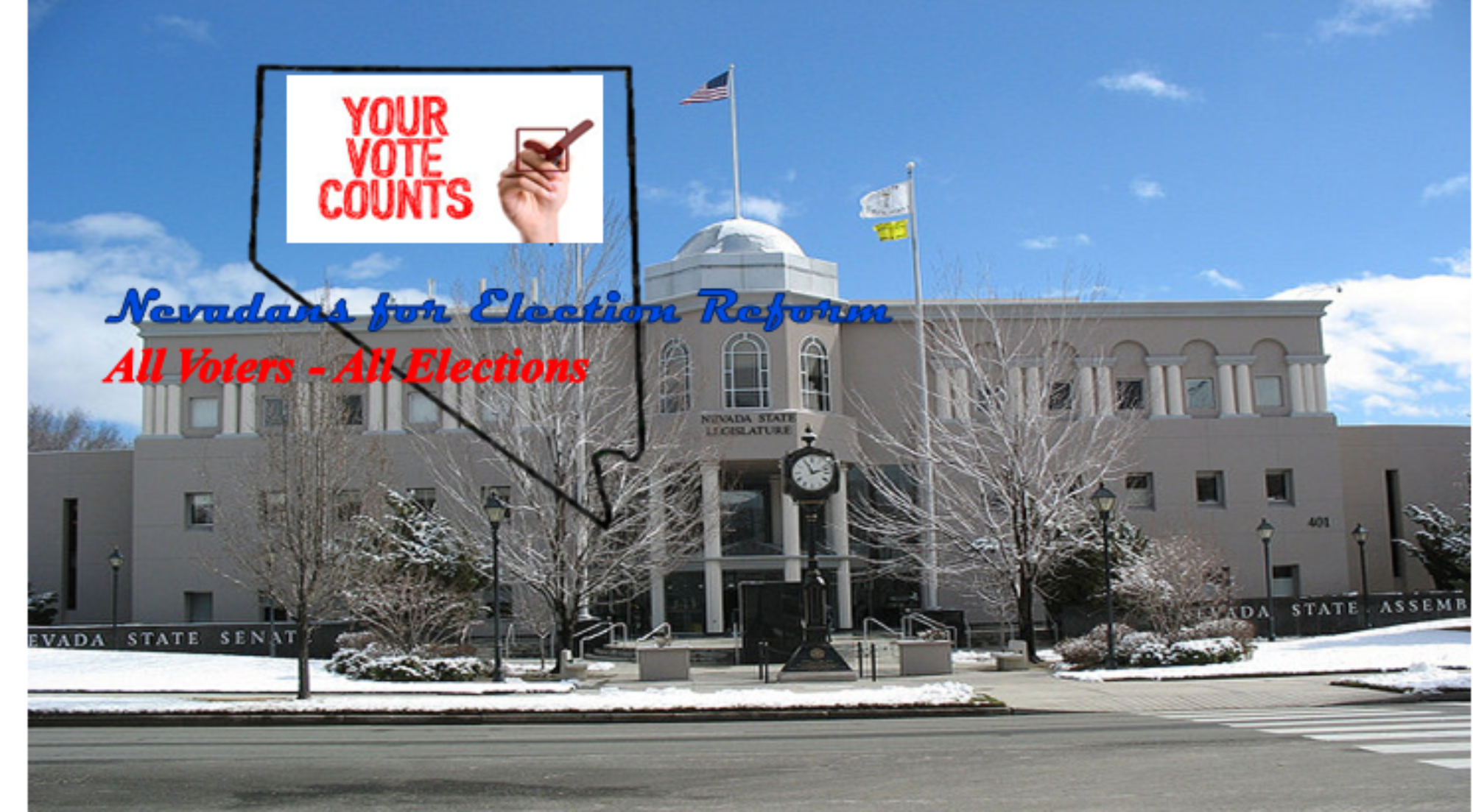If our political system is to draw in more people, return interest and trust in those institutions where decisions that impact our daily lives are made and not leave those decisions to a small minority of the population that does not share the diverse attitudes present in our society, the passage and implementation of the Nevada Election Modernization and Reform Act (NEMRA) is of major importance.
On June 26th, Pew Research released its largest ever survey on the status of the political ideology divide in the United States. This was preceded on June 12th by their study looking at political polarization and its impact on politics and daily life. That report echoed the findings of the Bipartisan Policy Center (see blog posting of June 25th“Bipartisan Policy Center Recommendations and Nevada Election Modernization and Reform Act Go Hand-In-Hand”).
This divisiveness is the greatest it’s ever been, extending beyond politics into our personal relationships and daily lives. It is now manifested through stark intra-party differences as well as inter-party. Election reform is critical if sanity is to return to American politics. NEMRA provides the path.
Those on the extreme left or right who are ideological pure represent only 27% of the general public (15 and 12 respectively) and 32% of registered voters (17 and 15). Of those only 40% (21 and 19) consider themselves politically active. This means 10.8% of the general public; 12.8% of registered voters dominate the political discussion.
The survey identifies a group, Business Conservatives that represent another 10% of the general public; 12% of registered voters; 17% of those are politically active, who generally vote Republican but differ from the extreme on social issues. The remaining 54% of the general public; 57% of registered voters, are not loyal to either of the two major parties, their views on many issues crossing party lines.
There is a clear need for consensus. A political party cannot succeed if its positions do not represent a majority of those who identify with it to any degree. The left is divided on the cost of social programs, the role of government, and social issues such as gay marriage and abortion. The rights is similarly divided on issues such as immigration, the role and impact of large corporations, the role of government, the environment, foreign policy, gay marriage and legalization of marijuana.
With such divisions on major issues and the lack of willingness to reach consensus, is it any wonder the issues impacting our daily lives, our cities, counties, states, and nation are not being satisfactorily addressed and resolved? No governing institution can be effective in this type of environment.
Pew’s findings are not isolated. In April of this year, Thirdway.org, a group chaired by a bipartisan group of members of Congress, released their State of the Center report. The results are parallel. However, it does not take national polls to know this. The legislators and others I have talked and met with are well aware of these differences and the way our current system perpetuates them. For the most part, they agree something needs to be done to fix the problem.
Other articles on this blog discuss how NEMRA will allow legislators to return to the job of governing to the benefit of all; how political parties can include all elements of their membership reducing the intra-party differences that are clearly present; how incumbents and those hoping to replace them will not jeopardize their chances for election by appealing to a consensus of the electorate rather than the extreme; how more ideas and potential solutions will be presented to the voters; how all voters will be encouraged to participate and how voter turnout will increase.
Our political differences are real. However, they do not need to be as divisive as we have allowed them to become. Most of us are not really that far apart. Modernizing our election process to facilitate discussion and once again provide effective and efficient governance is possible. The Nevada Election Modernization and Reform Act provides the path.
